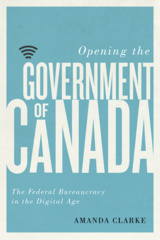
In an era where government transparency and accountability are considered fundamental values, does Cabinet secrecy still have a place? The legal and political rules that protect the confidentiality of collective decision-making at the highest level of the state executive have come under increasing scrutiny in Canada.
Behind Closed Doors: The Law and Politics of Cabinet Secrecy is the first comprehensive work on this controversial doctrine. Yan Campagnolo defends the practice of Cabinet secrecy by demonstrating that it is essential to the proper functioning of responsible government while finding that the secrecy regime at the federal level in Canada is excessively broad and possibly unconstitutional. This regime deprives the courts of the authority to meaningfully review the legality of executive action.
Based on a comparative analysis of the rules that apply at the provincial level in Canada and in the United Kingdom, Australia, and New Zealand – and an assessment of the latest developments in constitutional and administrative law – this meticulous work develops a feasible solution. Behind Closed Doors proposes innovative reforms that would achieve a better balance between government transparency and confidentiality. Those who operate the levers of power would do well to heed Campagnolo’s practical advice.
Legal academics, lawyers, judges, public officials, political scientists, politicians, journalists, and students will all find this impressive piece of scholarship invaluable.
As a former clerk of the Privy Council, I am delighted to see a book that so comprehensively and rigorously explores the ins and outs of the doctrine of Cabinet secrecy in a contemporary context.
Yan Campagnolo’s excellent book is rigorous, learned, very well written, clear, and to the point. It is a must-read for scholars as well as public officials and judges.
The scholarship in Behind Closed Doors is of very top quality. There is no doubt that it will become a reference work in the field.
Yan Campagnolo is an associate professor in the Faculty of Law at the University of Ottawa and a member of the Ontario Bar. He is the author of Le secret ministériel: Théorie et pratique and, with Adam Dodek, La Constitution canadienne, as well as numerous peer-reviewed articles in French and English. He has worked as a law clerk at the Supreme Court of Canada and as counsel for the Privy Council Office.
Foreword / The Honourable Louis LeBel, CC
Introduction
1 Constitutional Conventions
2 Common Law Public Interest Immunity
3 Statutory Public Interest Immunity
4 The Rule of Law
Conclusion
Appendix: Statutory Provisions
Notes; Selected Bibliography; Index








